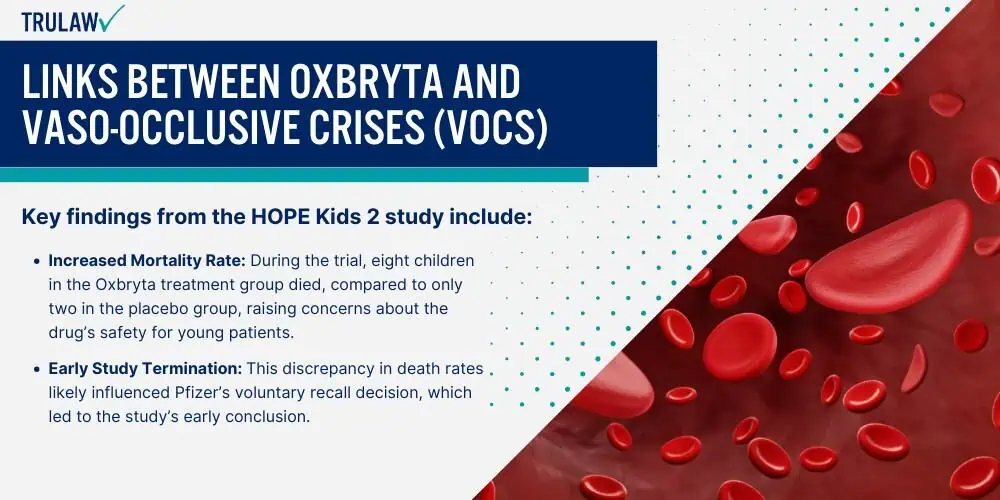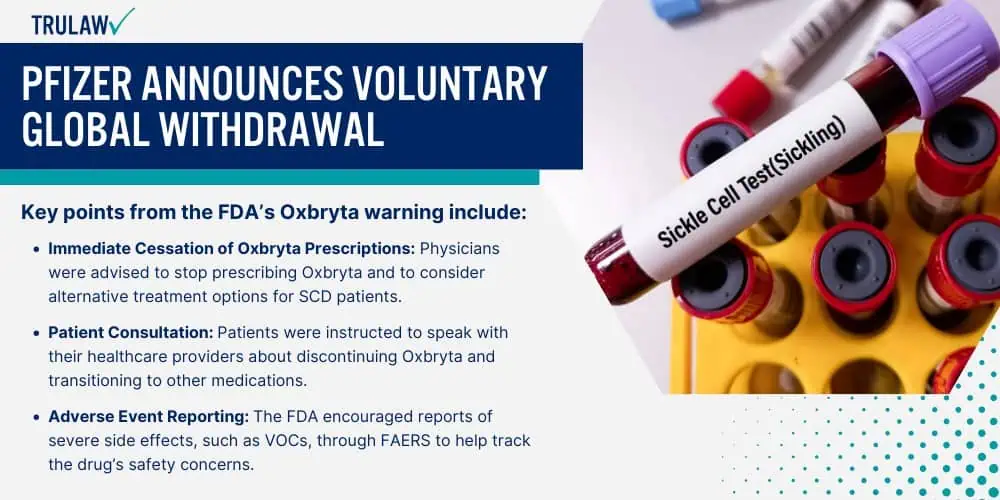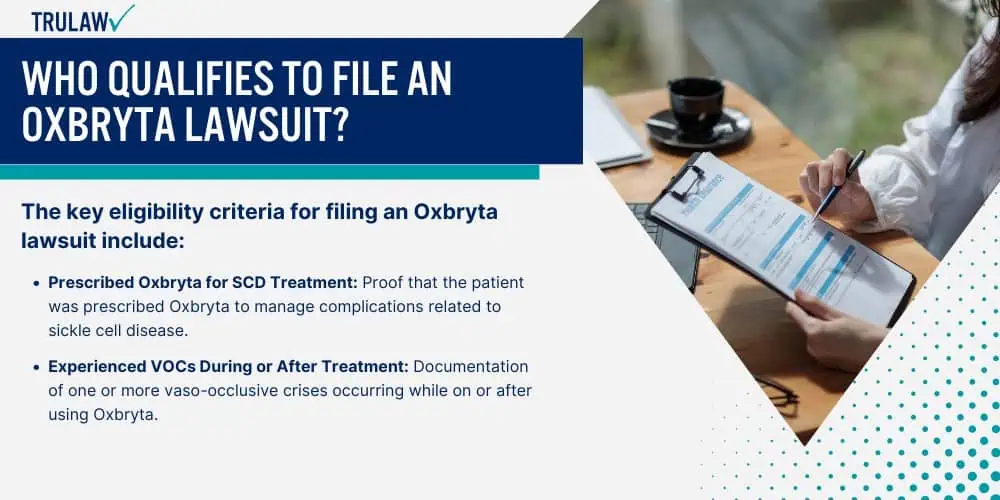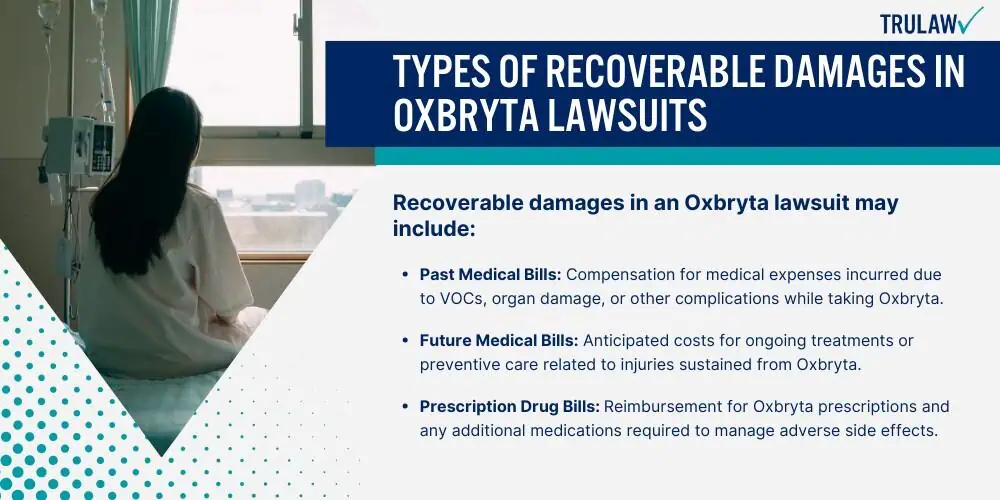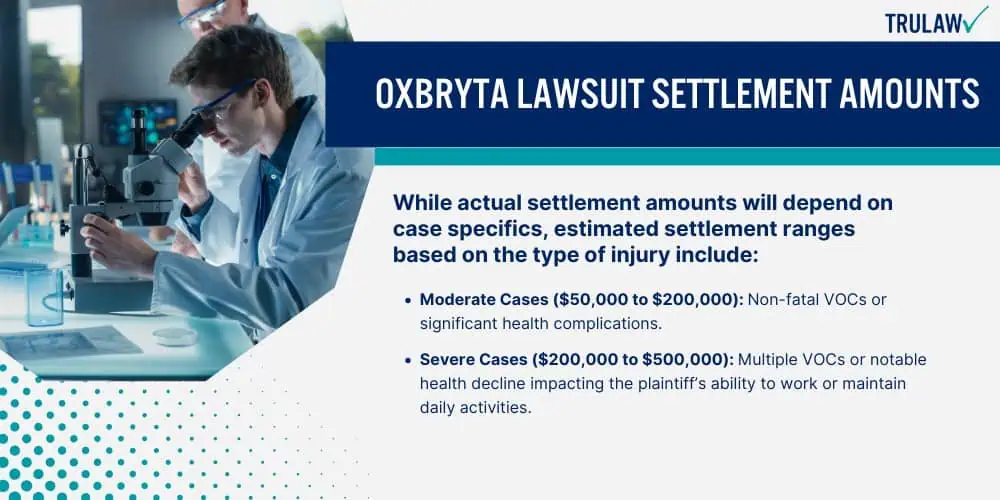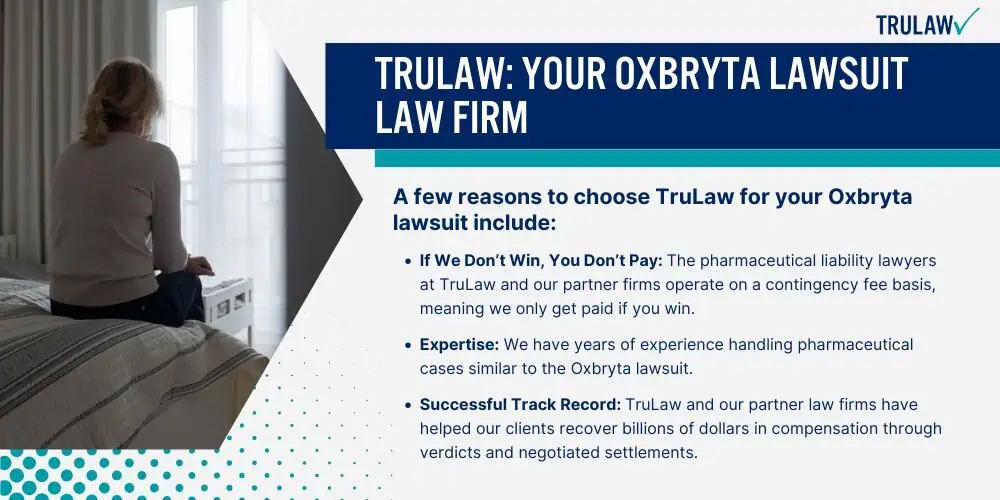Oxbryta (voxelotor) is a prescription medication developed to treat individuals with sickle cell disease (SCD), offering a novel approach as a hemoglobin S polymerization inhibitor.
Global Blood Therapeutics played a crucial role in developing Oxbryta.
This medication was designed to address the underlying cause of SCD by preventing red blood cells from assuming a sickle shape.
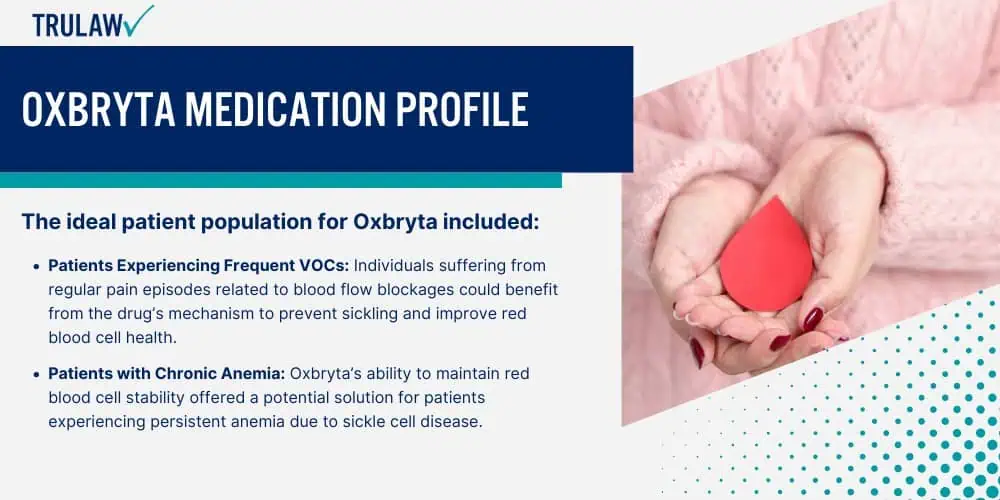
Oxbryta stabilizes red blood cells by binding to hemoglobin to improve their flexibility and reduce complications associated with SCD.
Available in tablet or liquid form, Oxbryta did not have a generic equivalent, and it was often prescribed alongside other treatments like hydroxycarbamide to reduce SCD-related complications, including pain episodes and blood transfusion requirements.
What is Sickle Cell Disease?
Sickle cell disease (SCD) is a genetic blood disorder characterized by the abnormal production of hemoglobin S, which affects the shape and function of red blood cells.
In SCD, the hemoglobin protein within red blood cells is abnormal, causing the cells to become rigid and assume a sickle or crescent shape.
These misshapen cells can block blood flow as they travel through the blood vessels, limiting oxygen delivery to tissues and organs.
This restricted circulation can result in a range of severe complications, including frequent infections, acute chest syndrome, and an increased risk of stroke.
Additionally, sickle cells have a shorter lifespan than normal red blood cells, leading to chronic anemia and fatigue in individuals with SCD.
Oxbryta was designed to prevent these complications by inhibiting hemoglobin polymerization, which causes red blood cells to sickle.
By reducing the formation of sickle-shaped cells, Oxbryta was intended to decrease the occurrence of vaso-occlusive crises (VOCs), a painful complication resulting from blocked blood flow, and improve overall blood flow and oxygenation for SCD patients.
Target Patient Population for Oxbryta Treatment
Oxbryta was specifically targeted toward patients with sickle cell disease, particularly those who were at high risk of complications due to frequent VOCs or chronic anemia.
Approved for individuals aged 4 years and older, the medication was developed to address the unique needs of populations disproportionately affected by SCD, such as those of African, Mediterranean, Middle Eastern, and South Asian descent.
Given the limited treatment options for SCD, Oxbryta represented an important therapeutic advancement for managing SCD complications without the invasiveness of treatments like blood transfusions.
The ideal patient population for Oxbryta included:
- Patients Experiencing Frequent VOCs: Individuals suffering from regular pain episodes related to blood flow blockages could benefit from the drug’s mechanism to prevent sickling and improve red blood cell health.
- Patients with Chronic Anemia: Oxbryta’s ability to maintain red blood cell stability offered a potential solution for patients experiencing persistent anemia due to sickle cell disease.
- Children and Adults: Oxbryta was approved for use in patients aged 4 and older, providing a treatment option suitable for both pediatric and adult populations.
- Underserved Populations at High Risk: With a higher prevalence of SCD among certain ethnic groups, Oxbryta aimed to meet the needs of communities that historically face health disparities and limited access to specialized care for SCD.
By stabilizing hemoglobin and preventing cell deformation, Oxbryta provided a targeted treatment option to reduce both the daily symptoms and long-term risks of sickle cell disease.

